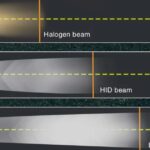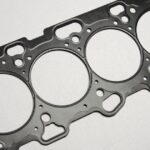It is not just annoying it can be dangerous on the road. We are here to help you figure out why. From electrical problems to mechanical issues, there are a few things that might be causing the problem.
Stick around as we break it down and give you simple fixes to get your horn honking loud and clear again. Ever pressed your car horn expecting a loud blast, only to hear a feeble sound? It is frustrating and potentially unsafe.
In this article, we will find why your car horn might sound weak. From electrical issues to mechanical problems, we’ll cover the common culprits. Stay tuned for simple fixes to get your horn honking loud and clear again. Let’s dive in and ensure your safety on the road.
Reasons Why Your Car Horn Sounds Weak
Your car horn should be loud and clear, but sometimes it sounds weak. Let’s figure out why. Electrical issues like blown fuses or faulty relays can be the culprit. Mechanical problems may also contribute to the weak sound.
Stick around as we uncover the reasons behind your car horn’s lackluster performance and find simple solutions to fix it.
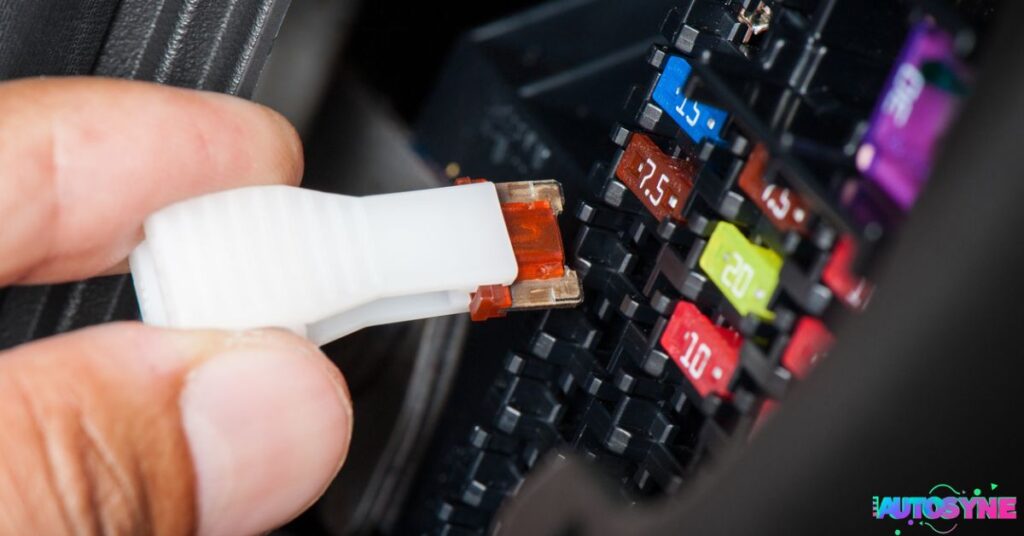
Blown Fuse
A blown fuse could be to blame. Fuses protect electrical circuits by breaking the connection when there’s too much current. When a fuse blows, it interrupts the electrical flow to the horn, resulting in a weak or non-existent sound.
You can check your car’s fuse box to see if the horn fuse is blown. If it is, simply replacing the fuse with a new one of the same rating can often solve the problem.
Read This Blog: Why is My Car Jerking After Oil Change?
Bad relay
A bad relay could be the reason why your car horn sounds weak. The horn relay is responsible for transferring electrical power to the horn when you press the button. If the relay is faulty or malfunctioning, it may not be providing enough power to the horn, resulting in a weak sound.
You can check the relay by swapping it with a known working relay in your vehicle or using a millimeter to test it. If the relay is indeed bad, replacing it with a new one should restore your horn’s functionality.
Airbag issue
It could be due to an issue with the airbag system. In modern cars, the horn switch is often part of the steering wheel, where the airbag is located. If there is a problem with the airbag, like a faulty clock spring or wiring, it might affect the horn’s function.
This could lead to a weak horn sound or no sound at all. It’s important to have a mechanic check and fix any airbag issues to ensure your horn works properly and keep you safe on the road.
Broken Clock Spring
When your car horn sounds weak, a broken clock spring might be the culprit. The clock spring consists of wires wrapped in a coil inside the steering wheel. It helps transmit signals from the horn button to the car’s control modules.
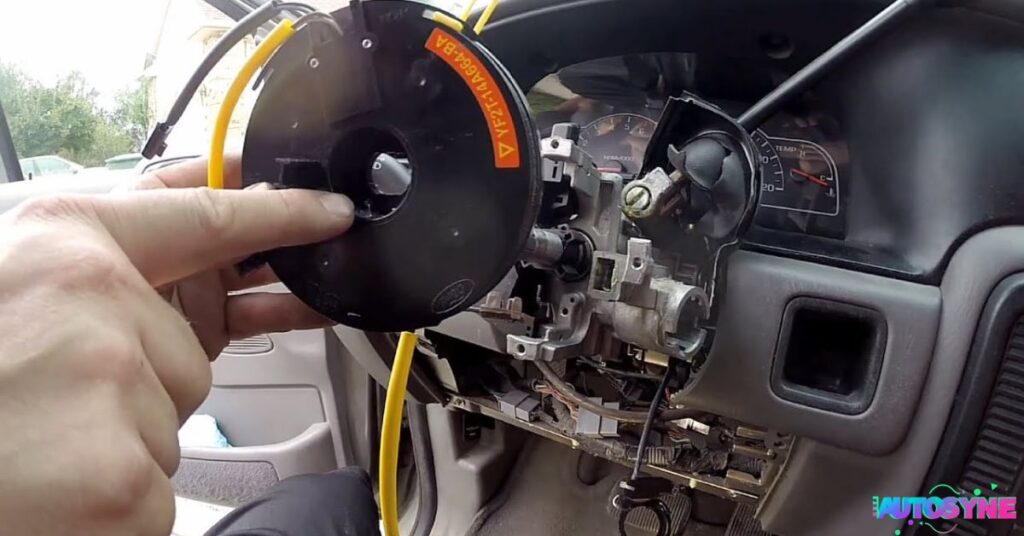
If the clock spring is damaged, it can disrupt the electrical connection, resulting in a weak horn sound or no sound at all when you press the horn button. If you notice these symptoms, replacing the clock spring is often the solution to restore your horn’s functionality.
Faulty Horn Switch or Button
To fix this, you’ll likely need to replace the horn switch. This should restore your horn’s strength and keep you safe while driving.
Faulty Horn Relay
A faulty horn relay could be the issue. The horn relay is like a switch that controls the flow of electricity to the horn when you press the button. If the relay is faulty, it may not send enough power to the horn, resulting in a weak sound.
You can check the relay by swapping it with another identical one in your vehicle or using a millimeter to test it. If it’s indeed faulty, replacing the horn relay should restore your horn’s strength and functionality.
Old Or Frayed Horn Wiring
If your car horn sounds weak, it might be because of old or frayed wiring. Wiring issues can disrupt the flow of electricity to the horn, making it sound weak or not work at all. Over time, wiring can become worn or damaged, leading to poor connections.
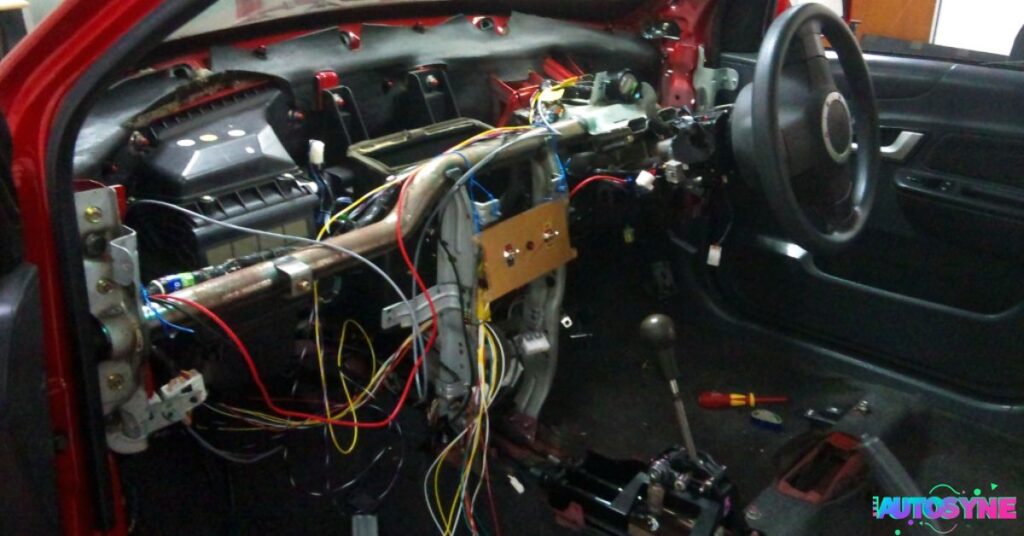
Check the wiring harness for signs of wear or damage. Replace any old or frayed wiring to ensure your horn sounds loud and clear when you need it.
How To Repair A Weak Car Horn
Want to fix your weak car horn? Here’s how. First, check the fuse box for blown fuses. Next, inspect the horn relay for faults. If the wiring looks old or damaged, replace it. Finally, test your horn to ensure it’s working properly again. That’s it! Now your car horn should sound strong and clear.
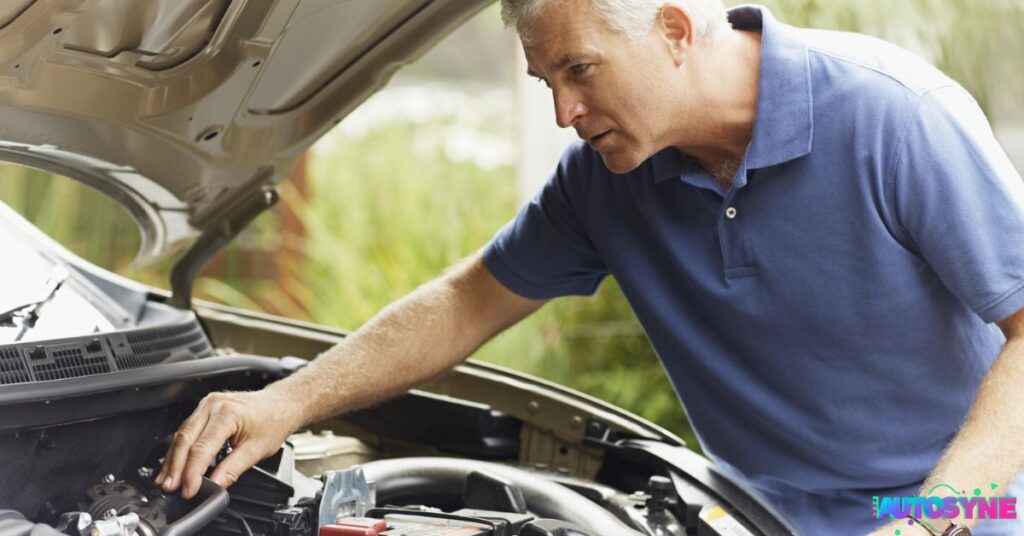
Check the fuse box
To start fixing your weak car horn, check the fuse box. Look for any blown fuses related to the horn circuit. If you find one, replace it with a new fuse of the same rating. This simple step could restore your horn’s power.
Inspect a horn relay
To repair your weak car horn, inspect the horn relay. Locate the relay in the fuse box under the hood. Check for any signs of damage or corrosion. If the relay appears faulty, consider replacing it with a new one to restore your horn’s functionality.
Also Read: Best Car Ideas For Prom (And 4 To Avoid)
Don’t Forget To Check The Horn Switch
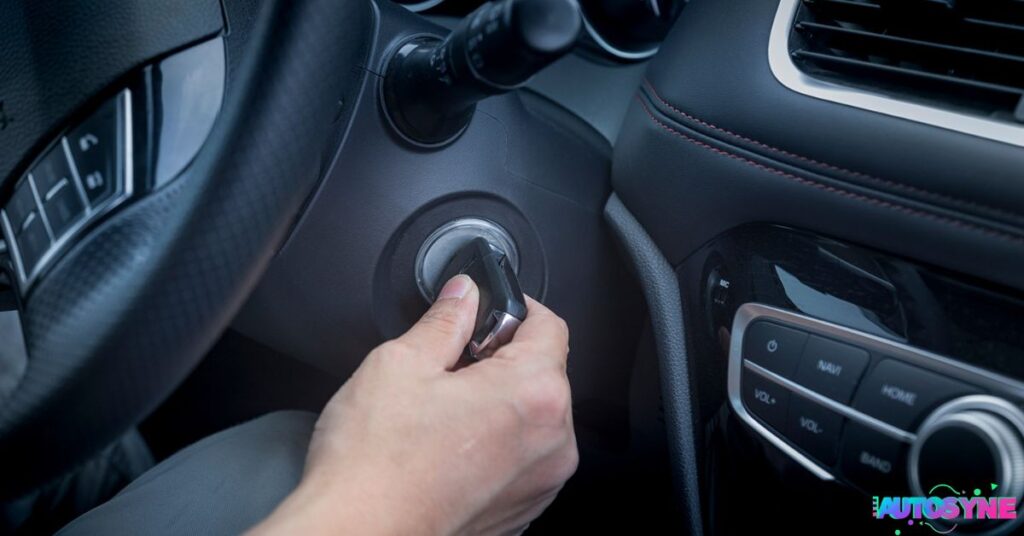
As you work on fixing your weak car horn, don’t overlook the horn switch. This switch is often on the steering wheel for easy access. Check if pressing it results in a weak sound or no sound at all. If so, the horn switch may be faulty and need replacement to ensure your horn works properly.
Cost to Fix a Car Horn
The cost to fix a car horn varies depending on the specific issue and where you take your vehicle for repairs. Minor fixes, such as replacing a blown fuse, may only cost around $20 to $50 for parts and labor.
However, more complex problems like replacing a faulty relay or wiring could cost between $100 to $300 or more. It’s recommended to consult with a mechanic for an accurate quote based on your car’s make and model, as well as the extent of the repairs needed.
What Does Diagnose Cost To See Why The Horn Isn’t Working?
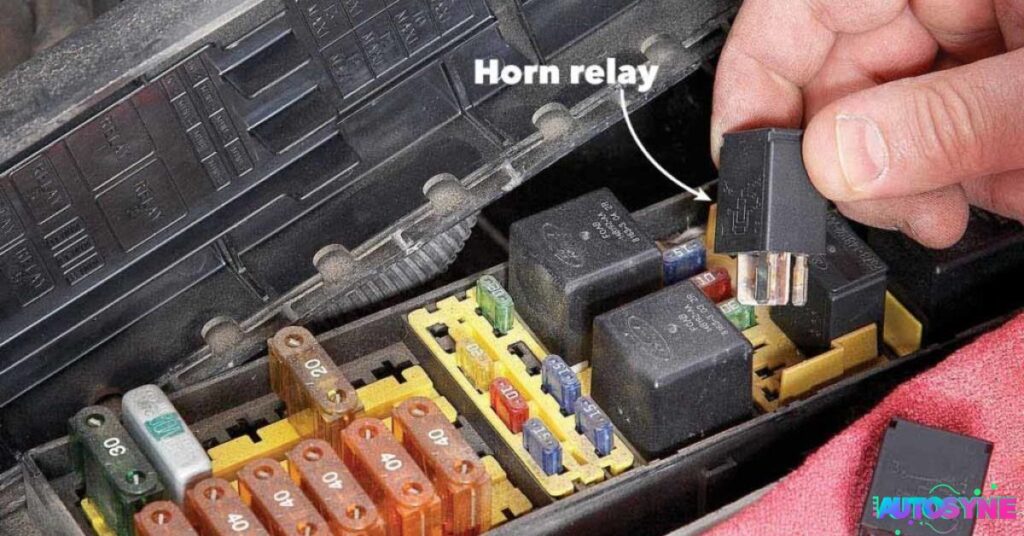
When diagnosing why your horn isn’t working, mechanics typically charge a fee for their time and expertise. This fee covers the process of identifying the underlying issue causing the horn malfunction. Additional repair costs may apply depending on the problem found.
Average Cost To Diagnose A Car Horn That Doesn’t Work
| Location | Average Cost |
| New York | $90 |
| Los Angeles | $85 |
| Chicago | $80 |
| Houston | $75 |
| Phoenix | $70 |
Average Cost Of Getting A Fuse Replaced By An Independent Garage
| Location | Average Cost |
| New York | $25 |
| Los Angeles | $20 |
| Chicago | $18 |
| Houston | $15 |
| Phoenix | $12 |
Average Cost For Fixing A Defective Horn Relay
| Location | Average Cost |
| New York | $175 |
| Los Angeles | $150 |
| Chicago | $125 |
| Houston | $100 |
| Phoenix | $90 |
Average Cost Of Having A New Horn Fitted Into Your Car
| Location | Independent Garage | Dealership |
| New York | $138 | $256 |
| Los Angeles | $130 | $220 |
| Chicago | $132 | $210 |
| Houston | $125 | $200 |
| Phoenix | $120 | $190 |
These costs are approximate and may vary depending on factors such as the type of horn, labor rates, and any additional services required.
Frequently Asked Questions
Why does my car horn sound weak sometimes?
Sometimes a weak car horn can be due to a blown fuse, faulty relay, or old wiring.
Why does my car horn sound softer?
A softer car horn sound may indicate issues with the horn relay, clock spring, or worn-out components.
Can a low battery cause a horn not to work?
Yes, a low battery can affect the horn’s performance by reducing its power output.
How can I make my horn louder?
To make your horn louder, you can consider upgrading to a higher quality horn or adjusting the horn’s settings.
Is it expensive to fix a car horn?
The cost to fix a car horn varies depending on the issue, but it can range from a few dollars for minor repairs to over $100 for more complex problems.
Can we repair car horn?
Yes, car horns can usually be repaired by diagnosing and fixing the underlying issue, such as replacing faulty components or adjusting settings.
How do you fix a dead car horn?
To fix a dead car horn, start by checking the fuse, relay, and wiring. If these are okay, consider replacing the horn itself if it’s damaged or worn out.
Conclusion
Maintaining a reliable car horn is essential for safe and efficient driving. While diagnosing and repairing issues such as weak sounds or malfunctions can incur costs, they are worthwhile investments in your safety.
Prices for repairs vary based on factors like location and the complexity of the problem, with minor fixes costing as little as a few dollars, while more intricate repairs can exceed a hundred dollars.
By addressing these concerns promptly and considering factors such as labor and parts costs, you can ensure your car horn functions optimally without overspending. Prioritizing the health of your car horn ensures you’re equipped with a crucial safety feature whenever you hit the road.

Thomas is a seasoned automotive writer with five years of expertise. His passion for cars fuels insightful articles on industry trends, technology, and driving experiences.


